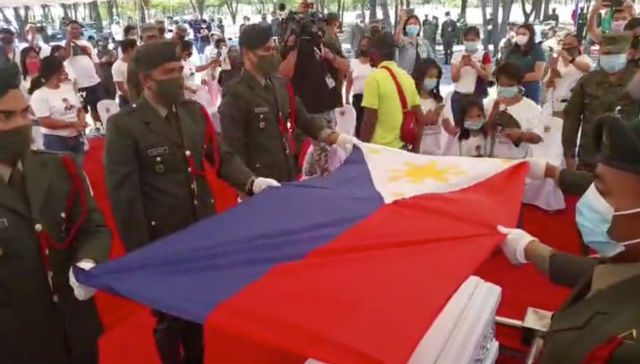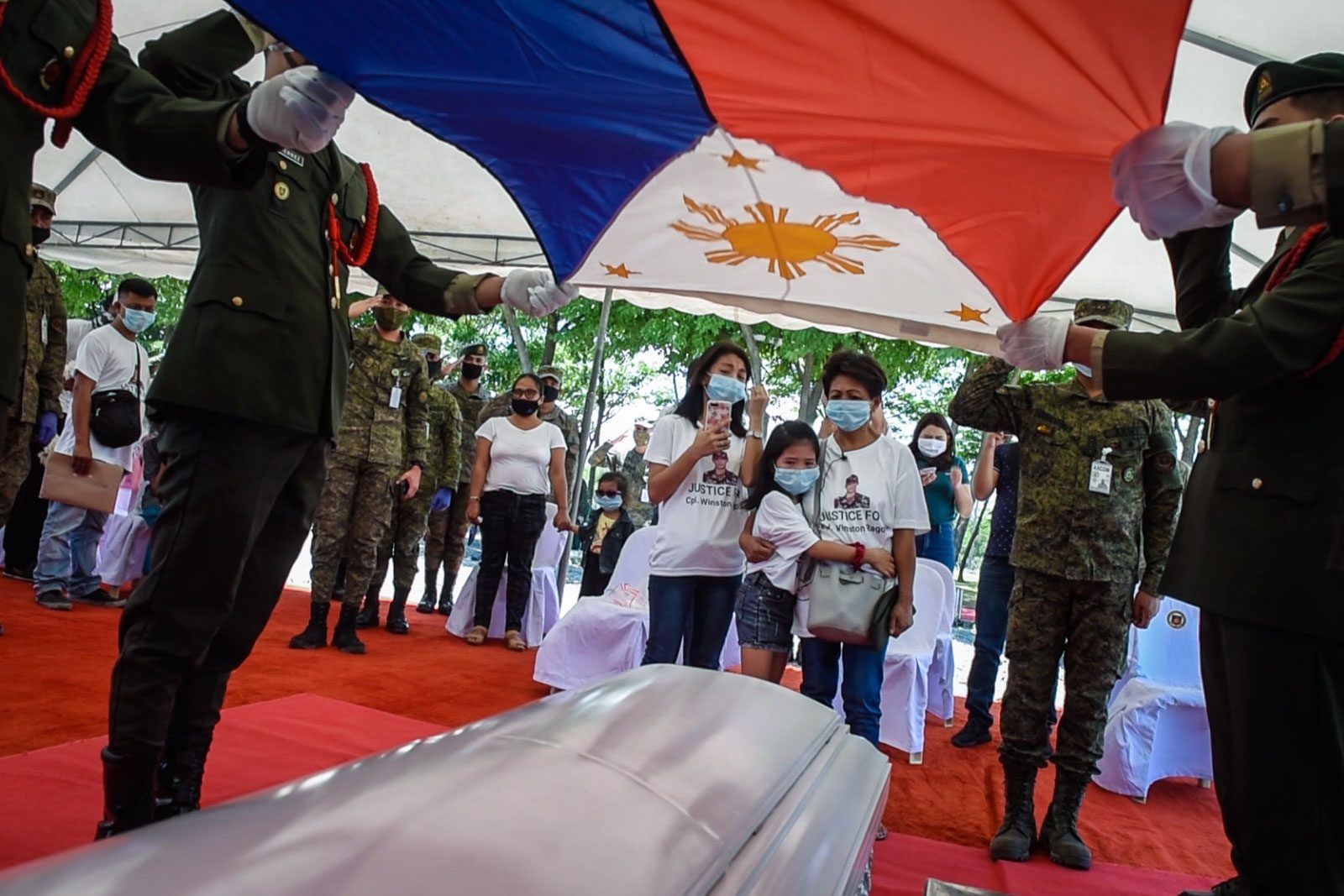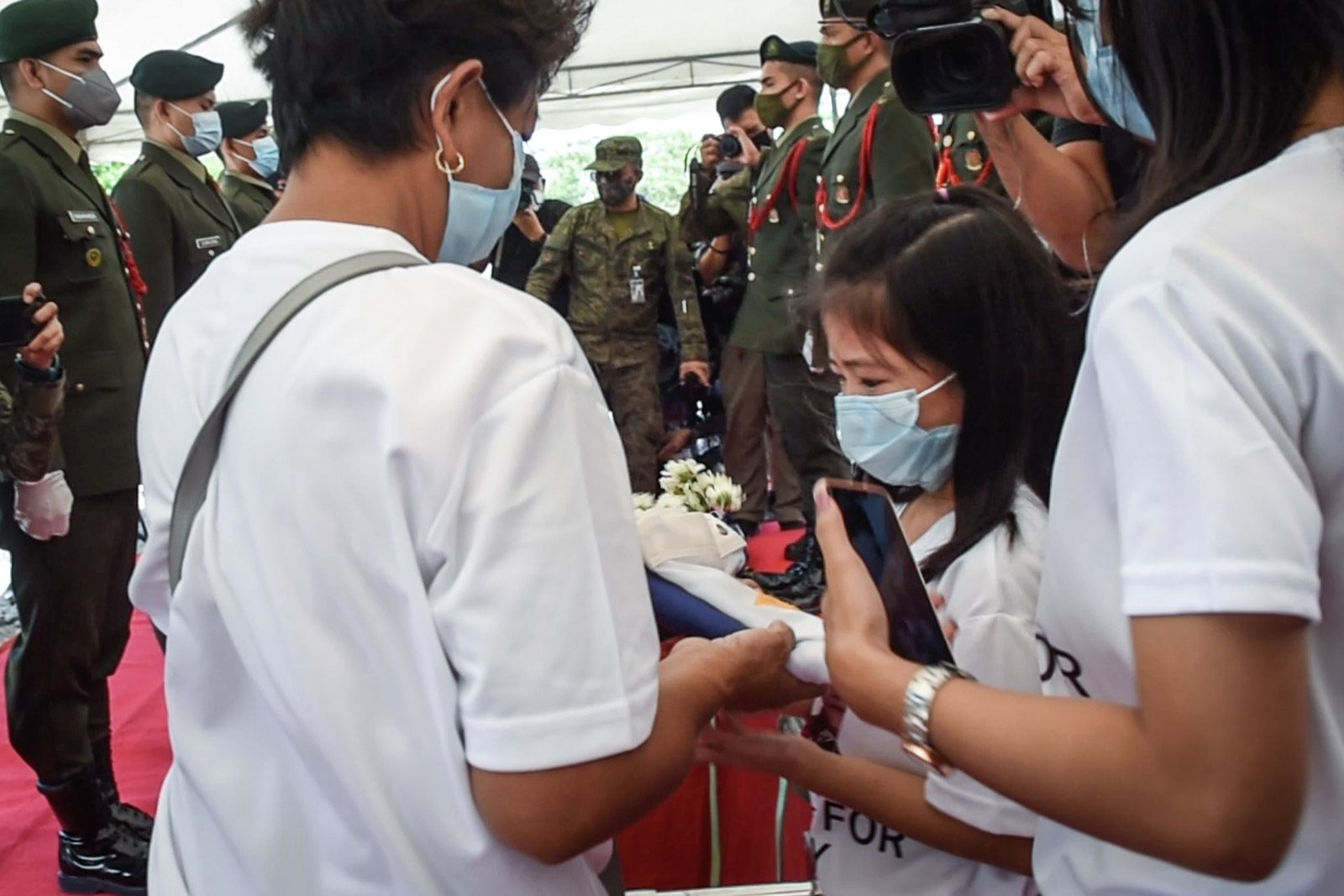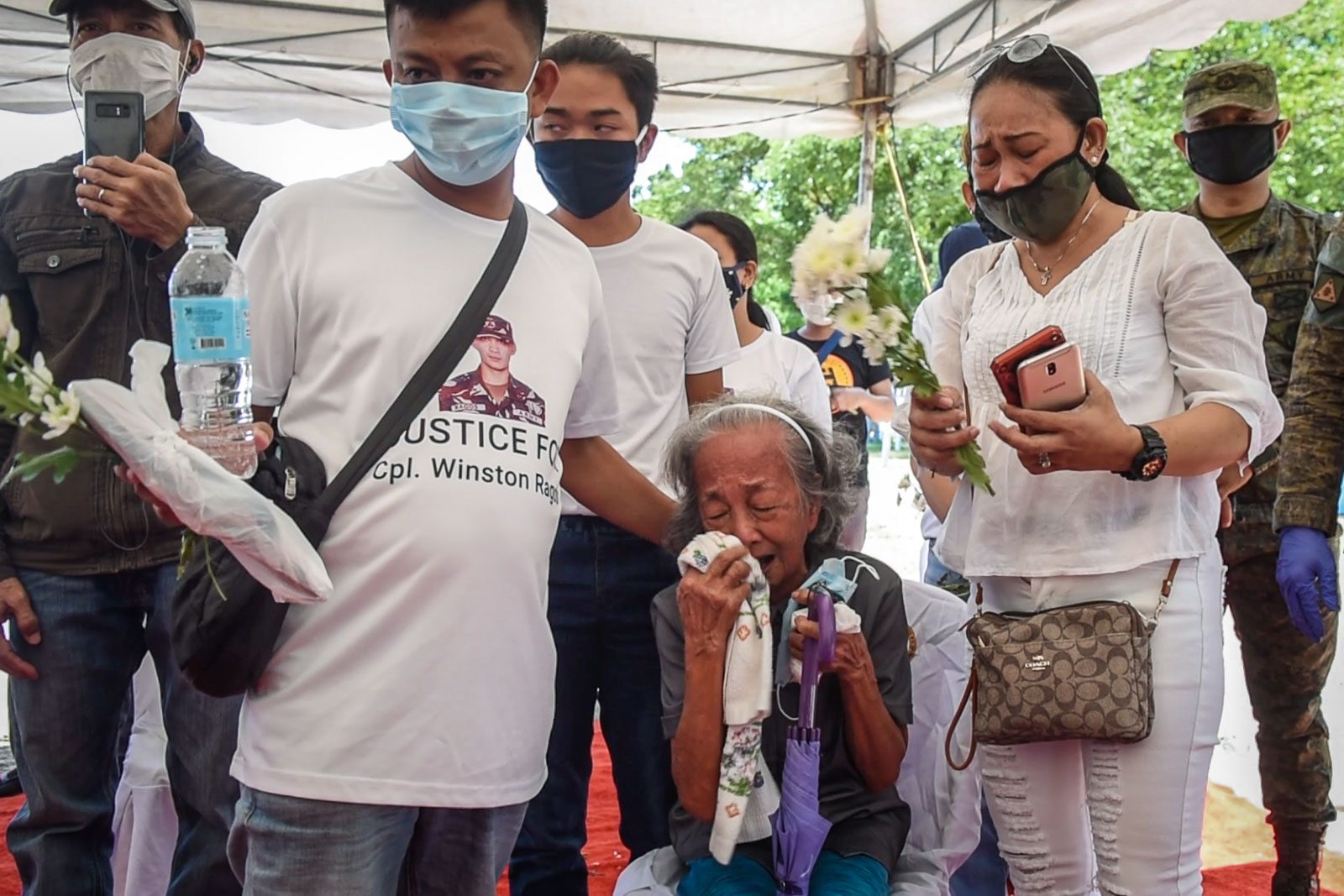SUMMARY
This is AI generated summarization, which may have errors. For context, always refer to the full article.

MANILA, Philippines – Corporal Winston Ragos, the retired military man who died in the hands of the police, was given a hero’s burial at the Libingan ng mga Bayani on Sunday, April 26.
The Armed Forces of the Philippines (AFP) rendered Ragos, a son of a policeman, military honors with a 21-gun salute before he was laid to rest at the national cemetery inside Fort Bonifacio in Taguig.
The Philippine flag, which had been draped over Ragos’ casket as military officers carried his remains to its final resting place, was handed to his mother Merlyn Ragos at the end of the ceremony. (READ: Winston Ragos’ mom to Duterte gov’t: Coronavirus is the enemy, not my son)



Ragos’ family weeped as the casket was slowly lowered to the ground. His only daughter, who was flown all the way from Bicol to attend her father’s funeral, cried as her grandmother consoled her.
They all wore identical white t-shirts bearing a photo of their slain loved one and the words, “Justice for Winston Ragos.”
On April 14, Ragos was sipping soda and smoking a cigarette outside his family’s home in Barangay Pasong Putik in Quezon City when several policemen accosted him for supposedly violating lockdown rules during the COVID-19 pandemic.
His back to the police, Ragos raised his hands in surrender, but police Master Sergeant Daniel Florendo Jr insisted he drop to the ground. But Ragos, who developed schizophrenia and trauma from his 7 years in the military, refused to heed the order. He then faced the police and reached into a pouch he was carrying.
Florendo shot him twice. Ragos staggered for a few seconds before falling to the ground. He died at a hospital hours later. He was 33 years old.
Police said they found a gun in Ragos’ pouch but his relatives insisted it was nothing but a water bottle.
The Quezon City Police District already filed a homicide complaint against Florendo, though top police officers defended him and argued Florendo merely made a “judgement call” in self-defense.
The Army has also launched its own investigation and asked the National Bureau of Investigation for an “impartial” probe on Ragos’ case.
Trauma management
That Ragos had been suffering from post-traumatic stress disorder (PTSD) at the time of his death prompted the Army to review its program for soldiers struggling with mental health issues.
Army spokesperson Colonel Ramon Zagala told Rappler that while the Army’s trauma management of its soldiers has vastly improved through the years, it could still be refined and enhanced.
Zagala said that the Army’s deputy commander for personnel, Colonel Poten Camba, has been tasked to conduct the review.
Zagala said that the Army is looking into improving its assistance to soldiers like Ragos who have been discharged from service because of their disabilities.
“We are taking care of our soldiers in active service, but we also have to continue assisting those who have been separated from service, like Ragos,” Zagala said by phone.
It is the Philippine Veterans Affairs Office (PVAO) and the Veterans Memorial Medical Center (VMMC) that look after the welfare of soldiers once they have retired or have been discharged because of their disabilities.
Zagala said that the Army can help the PVAO keep track of soldiers who continue to need medication and assistance even after they leave the service, especially those with PTSD. – with reports from Nikko Dizon/Rappler.com
Add a comment
How does this make you feel?
There are no comments yet. Add your comment to start the conversation.